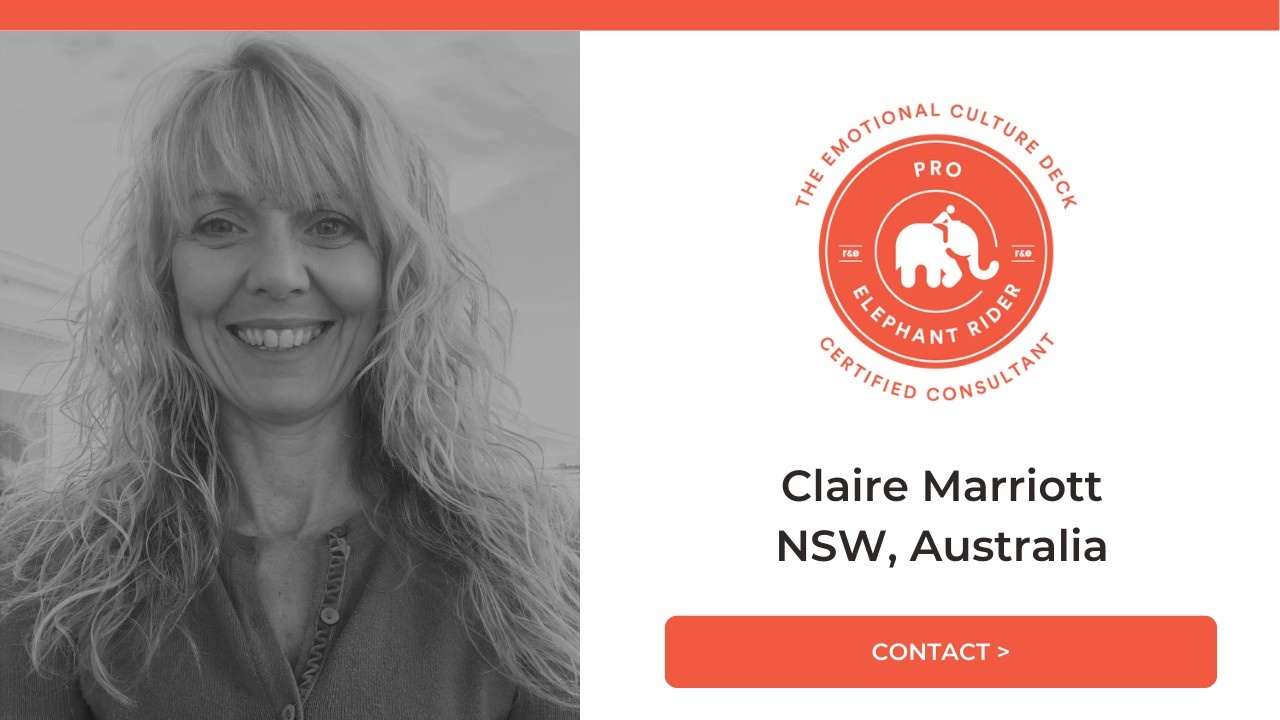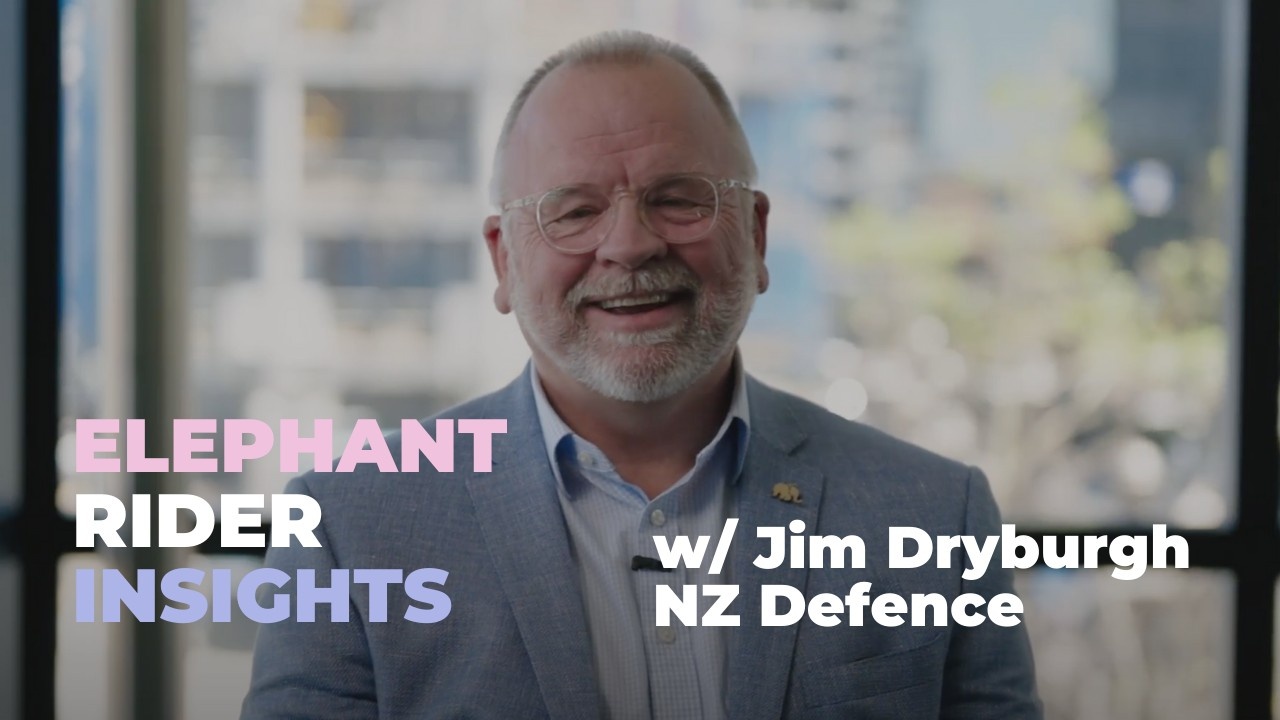Emotional Leadership. The Future of Leadership – Why Emotions Matter More Than Ever

Leadership is evolving. In a world of constant change, uncertainty, and complexity, the most effective leaders are not just those who strategise and execute well—but those who understand and manage emotions, both in themselves and in their teams. Our latest report, Emotional Leadership: The Future of Leadership – Why Emotions Matter More Than Ever, explores why emotions are the missing link in leadership development and how leaders can harness them to build stronger, more connected, and higher-performing teams.
Our research, in collaboration with the Wharton School of Business and Professor Michael Parke, reinforces what we’ve long believed: emotional leadership isn’t a ‘soft skill’—it’s a critical capability that drives engagement, trust, and performance. Findings from the study show that leaders who intentionally foster emotional support increase team resilience, collaboration, and overall job satisfaction. The data is clear—when leaders prioritise emotional culture, they create env...
Enrol Now: Our First Emotional Leadership Development Online Cohort Course
Leadership is About Emotions, Not Just Strategy
At riders&elephants, we believe leadership isn’t just about strategy, decision-making, or outcomes—it’s about relationships. And relationships are shaped by emotions. Every interaction, every decision, and every behaviour as a leader creates an emotional ripple effect that impacts your team’s morale, motivation, and performance.
But here’s the truth: most leadership development programs don’t focus on emotions. They might teach technical skills, frameworks, or behavioural strategies, but they rarely address the most human aspect of leadership—the emotional experience of being led.
That’s why we’re so excited to launch our brand-new Emotional Leadership Development Course, a 5-week journey designed to equip leaders, coaches, and managers with the tools to lead with intention, humanity, and emotional intelligence.
What Makes This Course Different?
This isn’t your typical leadership course. We’ve designed it to challenge traditional...
Emotional Leadership — The Missing Link in Leadership. Preview Newest ECD Specialist Course

As leaders, we’re expected to influence how people think, behave, and perform. Yet, how often do we stop to consider how they feel?
Emotions aren’t just “soft skills.” They’re the foundation of every decision, interaction, and action people take. If we’re not addressing how people feel—or how they should feel—we’re missing the biggest lever for creating meaningful change and sustainable performance.
This gap is even more apparent in the tension between what leaders and teams expect from each other. For many managers, offering emotional support can feel like going above and beyond their job. But for employees, it’s simply what good leadership looks like. It’s not a bonus—it’s an expectation.
This disconnect matters. Managers often feel unseen for the emotional care they give, while employees assume it’s part of the role. The result? Frustration and missed opportunities for deeper trust and collaboration.
So, how do we close this gap?
By shifting how we think about leadership. Leade...
Empowering the Leaders of Tomorrow: The ECD and the Whanake o te Kōpara Programme

Leadership doesn't happen overnight. It is nurtured, honed, and continuously developed. This is the ethos behind the Whanake o te Kōpara Programme—a comprehensive leadership development programme delivered by Women in Sport Aotearoa and Shift. Designed for young women aged 19-25, the programme is more than just a series of workshops and discussions. It's an investment in the leaders of tomorrow, specifically for a group that has often been overlooked: young women, particularly those involved in sport, active recreation, and wellbeing sectors in Aotearoa, New Zealand.
Why It Matters
In a world increasingly cognisant of the need for strong, well-rounded leaders, the Whanake o te Kōpara Programme plays an instrumental role. It doesn't just aim to fill a professional skills gap; it strives to fill an emotional and mental one, too. Young women emerge from the programme with newfound skills, certainly, but also with an emotional intelligence that enriches not only their professional journe...
'Good-Feel Goals: The secret to achieving your goals' by Claire Marriott

This article was written by Claire Marriott and originally posted on LinkedIn here.
As we continue to try and navigate these unprecedented times, we can firmly hold onto strategies such as the setting of smart goals. This gives the organisation, its respective individuals, and teams something concrete to work towards and help them steer through. When it comes to goal setting though how might we do this better? we talk about SMART and motivating goals yet how often do we really connect in with our emotions and how we feel about our goals.
Setting the right goals may seem like an easy thing to do, but in practice while it’s a goal and it follows all of the SMART measures, an emphasis on targets and challenges that people need to work towards, we can often find is there is no energy towards actually achieving these. For goals to help us learn and grow we have to be motivated by them. When it comes to motivation our emotions act as the guide, they give us an emotional charge such as ...
Emotional Leadership

There is no one way to exercise leadership.
But emotion is critical.
Because emotion helps you understand who you are working with. It also helps you build relationships with your people based on who they are – not who you are.
Emotional leadership involves:
Awareness of the importance of emotions - yours and others - and their impact on individuals and the team as a whole. Then using that emotional awareness and understanding to shape the culture of the team positively
Understanding your people, where they are emotionally and being able to help them manage their unpleasant feelings and express pleasant feelings
Sharing your vulnerability and leading by permitting people to bring their whole selves to work
Creating an environment where people's feelings matter and it's safe to express themselves fully.
You - the leaders - set the tone.
You must bring your whole self to work. Separating yourself from leadership is not an option. Separating yourself from your emotions is not an op...
Emotional Leadership Ep 4: Mat Kearney, Inside Consulting
Mat Kearney is a partner of Inside Consulting.
He believes good leadership is about caring for people and care for performance.
There should be an equal amount of care for our people's health and wellbeing and the care for the performance of the organisation.
Emotional leadership is all about the awareness of the importance of emotions – acknowledging the impact of for the individual and collective.
Using that emotional awareness and understanding to positively shape the culture of the team in a deliberate and intentional way
Mat beloieves being a leader who is connected to emotions, and understanding the importance of emotion means we can earn trust and respect and create a connection on a deeper level.
***
Want to learn more and try the ECD for free?
Emotional Leadership Episode 1 – Jim Dryburgh, NZ Defence Force

Jim Dryburgh unlocks the power of emotions to better understand his people and the human condition. Making people feel safe, supported and empowered.
Welcome to Emotional Leadership by Jim Dryburgh, Chief of Staff at NZ Defence Force. Jim is an ECD Certified Consultant aka Pro Elephant Rider.
Learn from him all about his approach to leadership and the role emotion plays in high-performing teams.
Watch the full 9min episode here. It's packed full of surprising and powerful leadership gems:
Emotional Leadership – Season 2 Elephant Rider Insights
There's a myth that work and emotions don't mix. That we need to check them at the door. Lots of leaders suppress feelings or avoid expressing them. We're gonna flip workplace conversations and show you how embracing emotions as a leader will change the way you lead.
There is no one way to exercise leadership. But emotion is critical. Because emotion helps you understand who you are working with. It also helps you build relationships with your people based on who they are – not who you are.
Emotional leadership involves:
- Awareness of the importance of emotions – both yours and our peoples' – acknowledging the impact of them on the individual and collective impact they have on the team. Using that emotional awareness and understanding to positively shape the culture of the team – deliberately and intentionally.
- Understanding your people, where they are emotionally and being able to help them manage the unpleasant feelings and express the desired feelings
- Creating an environment ...
ECD Most Valuable Plays with Cam Mitchell
Learn from Cricket Wellington CEO, Cam Mitchell, about his approach to emotional leadership and how ECD adopters and Practitioners can get the most out of the game when working with CEOs.
***
Want to try the ECD for free?

